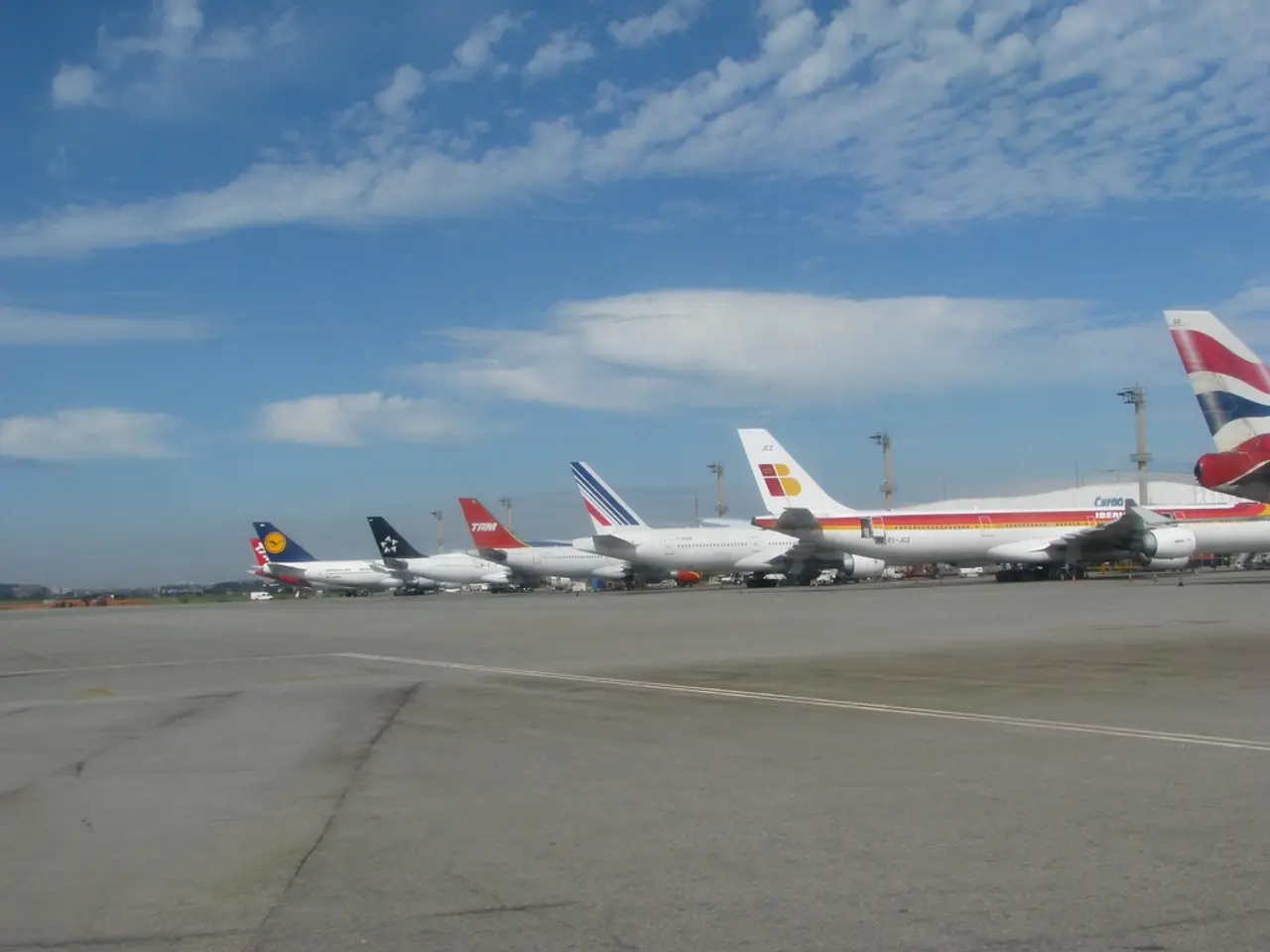Travelers Endure Unprecedented Summer Flight Delays
**European Air Travel Disrupted: Staff Shortages, Strikes, and Delays**
Summer travel across Europe is facing significant disruptions in 2025, as air traffic control (ATC) issues continue to escalate. The problems stem from widespread staff shortages, ongoing strikes—particularly by air traffic controllers in France—and insufficient recruitment and training policies [3][2][4].
**Impact on Summer Travel**
The repercussions of these issues are far-reaching. France’s air traffic control strikes have led to over 1,500 flight cancellations and affected half a million passengers, with airlines such as Ryanair, easyJet, and Air France experiencing bulk cancellations [2][4]. The strikes are not only affecting flights to and from France but also those flying over French airspace from countries like Spain, Portugal, Belgium, and Morocco, causing delays and extended travel times for many passengers [2][4].
Last year, France alone experienced almost 30,000 flight disruptions impacting over 5 million passengers, and the situation is expected to worsen in 2025 [3]. The disruptions are also affecting countries such as Germany, Greece, and Spain.
**Measures Being Considered or Implemented**
Air traffic controllers and unions are calling for reinforced staffing levels and better working conditions to address the chronic shortages and reduce delays [4][3]. There are growing calls for national transport ministers to be held responsible for the repeated ATC disruptions. Advocacy groups and passengers are being encouraged to demand action from their governments [3].
Travelers are being advised to monitor their flight status, understand their rights under EU law, and check travel insurance policies for coverage in case of cancellations or delays [2][4]. In France, while some routes have been cut, there has been a redistribution of seats to high-demand connections, aiming to minimize overall disruption while maintaining capacity where possible [1].
The European Commission is considering relaxing rules for the training of air traffic control personnel to address the staff shortage [5]. Travelers can seek compensation for delayed or cancelled flights through a lawyer, web portal, or mediation service.
**Summary Table**
| Factor | Impact on Travel | Current Response/Mitigation | |-------------------------------|---------------------------------------|---------------------------------------| | ATC Strikes | Mass cancellations & delays | Passenger rights awareness | | Staff Shortages | Chronic delays, operational stress | Demands for hiring/training | | Industrial Action (hotels) | Accommodation disruptions | Negotiations, strike warnings | | Rerouting (French airspace) | Longer flight times | Flight status monitoring | | Government Inaction | Repeated annual disruptions | Advocacy for ministerial accountability| | Training Rules Relaxation | Potential changes to train personnel | European Commission consideration | | Compensation for Delays | Seeking compensation for disrupted flights | Lawyer, web portal, or mediation service |
As the situation remains volatile throughout the summer, travelers are advised to stay informed, plan for possible disruptions, and be aware of their rights. The number of lawsuits against airlines at courts near major German airports reached a record high of 131,000 last year [6]. Fraport CEO Stefan Schulte stated that air traffic control has become the main factor in delays [7]. The European airline association, Airlines for Europe, criticized the French air traffic controller strike [8].
- In light of the staff shortages and insufficient training policies in air traffic control (ATC), some individuals from the community are calling for vocational training programs to be prioritized and expanded to address the ongoing issues.
- As students consider various lifestyle choices for their future, it is essential to understand that vocational training, specifically in ATC, could lead to a stable career with potential opportunities for travel, given the increasing demand and the critical role they play in the aviation sector.




